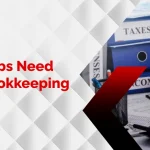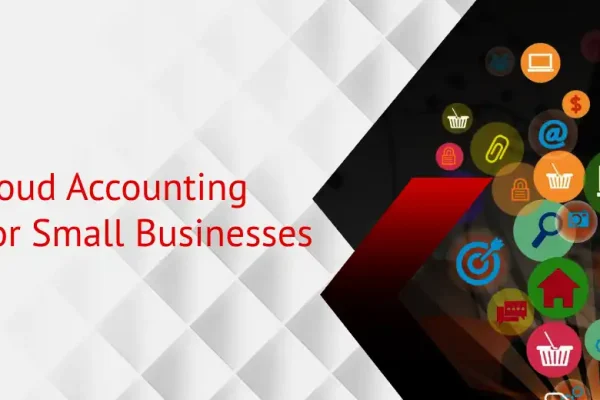Bookkeeper vs Accountant: What Does Your Business Need?
Many small business owners struggle to decide whether they need a bookkeeper or an accountant. While the roles may seem similar, they serve distinct functions and support different stages of business growth.
This guide outlines the key differences, helping you make the right choice based on your business needs. At Suits Consultants, we provide clarity and guidance to support smarter financial decisions.
What Is a Bookkeeper?
A bookkeeper is responsible for tracking and recording all day-to-day financial transactions of a business, such as sales, expenses, invoices, and payroll. They ensure that financial data is accurate and up to date for reporting purposes.
What Is an Accountant?
An accountant uses financial data to create reports, perform analyses, file taxes, and ensure regulatory compliance. They provide strategic financial guidance based on the business’s needs.
The relationship between bookkeeping and accounting, and their key differences, is especially important for small businesses aiming to maintain clear financial records and meet compliance requirements.
Key Differences Between Bookkeepers and Accountants
| Feature | Bookkeeper | Accountant |
| Primary Role | Records daily transactions | Analyzes data and provides financial insights |
| Main Tasks | Invoicing, expense tracking, payroll, reconciliation | Financial reporting, tax filing, budgeting, compliance |
| Tools Used | QuickBooks, Xero, Wave | Excel, QuickBooks, Tax software (e.g., TurboTax, IRS e-file) |
| Required Skills | Accuracy, attention to detail, data entry | Analytical thinking, regulatory knowledge, forecasting |
| Typical Cost | Lower hourly rate | Higher hourly or project-based rate |
Common Misconception: Many assume bookkeepers file taxes or offer financial strategy, but this is typically the accountant’s role. Bookkeepers organize financial data—accountants interpret and act on it.
Which One Does Your Business Need?
Choosing between a bookkeeper and an accountant depends on several factors unique to your business. Consider the following to determine what fits best:
- Business Stage: Early-stage businesses often start with a bookkeeper; growing or complex businesses benefit from an accountant.
- Monthly Transaction Volume: Low volume can be managed by a bookkeeper; high volume usually requires an accountant’s oversight.
- Tax Complexity: Simple tax situations may only need a bookkeeper’s records; complex taxes and compliance call for an accountant.
- Growth Plans: If you plan to scale, seek funding, or require detailed financial forecasting, an accountant is essential.
Not sure where you fall on the spectrum? Suits Consultants can help assess your needs based on your current operations.
When You Might Need Both?
There are situations where having both a bookkeeper and an accountant is beneficial:
- Year-end close: Bookkeepers prepare accurate records; accountants finalize reports and file taxes.
- Preparing for funding: Bookkeepers maintain clean financial data; accountants analyze and present financial health to investors.
- Tax season cleanup: Bookkeepers organize transactions; accountants handle complex filings and compliance.
Real-Life Scenarios
Different businesses have unique financial needs — here are examples of how bookkeepers and accountants fit into real-world operations:

Scenario 1: A freelancer uses a virtual bookkeeper to manage daily transactions and invoicing throughout the year, then hires an accountant annually for tax filing and financial advice.
Scenario 2: A retail shop owner initially handles their bookkeeping but brings in a tax expert each year to ensure compliance and optimize deductions.
Scenario 3: A SaaS startup hires both a bookkeeper and an accountant from early stages to maintain accurate records and prepare detailed financial reports for investors and growth planning.
How to Choose the Right Financial Professional
Selecting the right financial expert is crucial for your business’s financial health. Consider these points before making a hire:
- Questions to Ask Before Hiring:
What experience do you have in my industry?
How do you handle communication and reporting?
What software and tools do you use?
Can you provide references or case studies? - What to Look for in Credentials and Experience:
Relevant certifications (e.g., CPA for accountants, bookkeeping certifications)
Proven track record with similar businesses
Familiarity with current tax laws and accounting standards - Red Flags to Avoid:
Lack of transparency about fees or services
Unclear or inconsistent communication
No clear contract or service agreement
Limited or no client references
Final Thoughts: Bookkeeper, Accountant, or Both?
Choosing the right financial partner depends on your business goals as much as your current stage. If you need accurate daily recordkeeping, a bookkeeper is the right fit. For tax filing and financial analysis, an accountant is essential. In cases of complex finances or growth plans, both professionals may be necessary.
Contact Suits Consultants to work with vetted financial experts and help your businesses scale confidently. When you’re ready to explore your options, we’re here to assist.
FAQs
What does a bookkeeper do that an accountant doesn’t?
A bookkeeper records daily financial transactions, manages accounts payable and receivable, and reconciles bank statements. An accountant analyzes this data to prepare financial statements, file taxes, and provide strategic financial advice.
Can I hire a part-time bookkeeper?
Yes, hiring a part-time bookkeeper is a practical option for small businesses with manageable transaction volumes. It allows for cost-effective financial management without the need for a full-time employee.
Do I need a CPA to file taxes?
No, you don’t need a CPA to file taxes. Anyone with an IRS Preparer Tax Identification Number (PTIN) can prepare and file taxes. However, a CPA can provide additional services like audit representation and complex tax planning.
How do I transition from DIY to hiring a pro?
Begin by assessing your business’s financial needs and identifying areas where professional help is required. Then, research and hire a qualified bookkeeper or accountant who aligns with your business goals.






